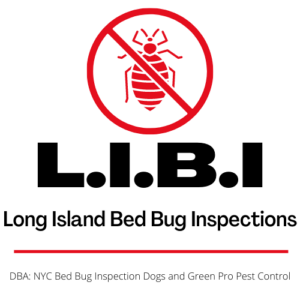When it comes to bed bugs myths and misinformation spread almost as rapidly as the pests themselves. As one of the more notorious household pests you’d think we’d all understand more about these blood-sucking insects. But even after decades of research and investigation many people remain ill-informed about these bothersome and wholly unwelcome pests. To help separate fact from fiction we’ve gathered together a list of five common bed bug myths and the truths that debunk them.
Myth #1 – Bed Bugs Only Infest Dirty Homes
One of the most persistent myths about bed bugs is that they only invade dirty homes. The truth is, bed bugs don’t discriminate based on cleanliness. They’re not attracted to dirt or grime the way cockroaches or ants might be. Instead, they are draw to people. More specifically they are attracted to the carbon dioxide people exhale and the body heat we all give off when we’re asleep. That makes us all targets for their attention.
A spotless, freshly cleaned home can still have a bed bug infestation if the pests are introduced by visitors, luggage or secondhand furniture. While clutter may make it harder to detect and treat the infestation, cleanliness alone has little to do with whether or not you’re get bed bugs.
Myth #2 – Bed Bugs Transmit Diseases
Many people assume that because bed bugs bite they spread diseases in the way mosquitoes or ticks will. Fortunately, scientific research has shown that bed bugs do not transmit diseases to humans. Their bites can certainly cause red and itchy welts, but these are only a common allergic reaction that varies greatly according to the sensitivity of the victim. Otherwise, bed bugs are not considered disease vectors.
Of course, this doesn’t mean that bed bugs are harmless. Constant itching can lead to secondary skin infections, and the mental toll of dealing with these pests can lead to stress and sleepless nights. But knowing that bed bugs don’t carry or transmit diseases should provide some peace of mind for those dealing with an ongoing infestation.
Myth #3 – Bed Bugs Only Bite at Night
One of the most common of all bed bug myths is that they only attack night while their victims are asleep. While it’s true that bed bugs are primarily nocturnal, they are also opportunistic and will feed at any time of the day or night. Their behavior is driven more by the availability of a host rather than a timetable.
Bed bugs are attracted to the warmth of human bodies and the carbon dioxide we exhale. They prefer a host that is quiet and still, which is why they tend to strike while we sleep. However, if they’re hungry and there’s an opportunity to feed they will happily strike during the day.
Myth #4 – You Can Only Get Bed Bugs From Hotels
Hotels and motels have a higher risk of infestations due to the high turnover of guests. But bed bugs are not confined to these types of accommodations. They can, and will, infest any location where people tend to travel or congregate. That includes movie theatres, schools, government offices and even daycare centers.
Bed bugs don’t just infest mattresses. They will hide in all types of furniture, as well as in cracks and crevices in the walls. Once they hitch a ride into your home they can quickly establish a colony. The reality is that bed bugs can be picked up almost anywhere, making them a difficult pests to completely avoid.
Myth #5 – You Can Eliminate Bed Bugs with DIY Methods
The internet is awash with advice on do-it-yourself methods to get rid of bed bugs. These tend to run the gamut from essential oils and rubbing alcohol to over-the-counter foggers and sprays. Some ‘online experts’ even suggest using dryer sheets to keep bed bugs at bay. But the truth is, most of these methods are at best ineffective and at worst dangerous.
For example:
- Over-the-counter sprays rarely reach all of the hiding places bed bugs occupy and can even help to spread the pests throughout your home.
- Rubbing Alcohol may kill bed bugs on contact, but it evaporates quickly and leaves on residual effects. It’s also a fire hazard.
- Bug bombs or foggers can drive bed bugs deeper into hiding making them harder to detect and treat.
- Essential oils may temporarily repel some pests but they won’t treat the heart of an infestation.
Professional treatment is almost always necessary to fully clear an infestation. Pest control companies have access to tools and treatment methods that kill bed bugs at all stages of their life cycle, from eggs to adults. Relying solely on DIY methods only wastes time and money while the infestation itself grows worse.
In the final analysis, the best defense against bed bugs is knowledge and professional help. Know the truth about these pests helps you take the necessary steps to protect your home and family. If you suspect an infestation, don’t rely on myths or misinformation. Contact a licensed professional inspection and removal service immediately. The sooner you act the more likely you can minimize the impact of an infestation and retain your family’s peace of mind.
Published by Scott Palatnik
We are Bedbug Inspection & Elimination specialists.
From Manhattan to Montauk and all points in between.
Got questions?
We got answers.
Give us a call @ 516-619-6149


